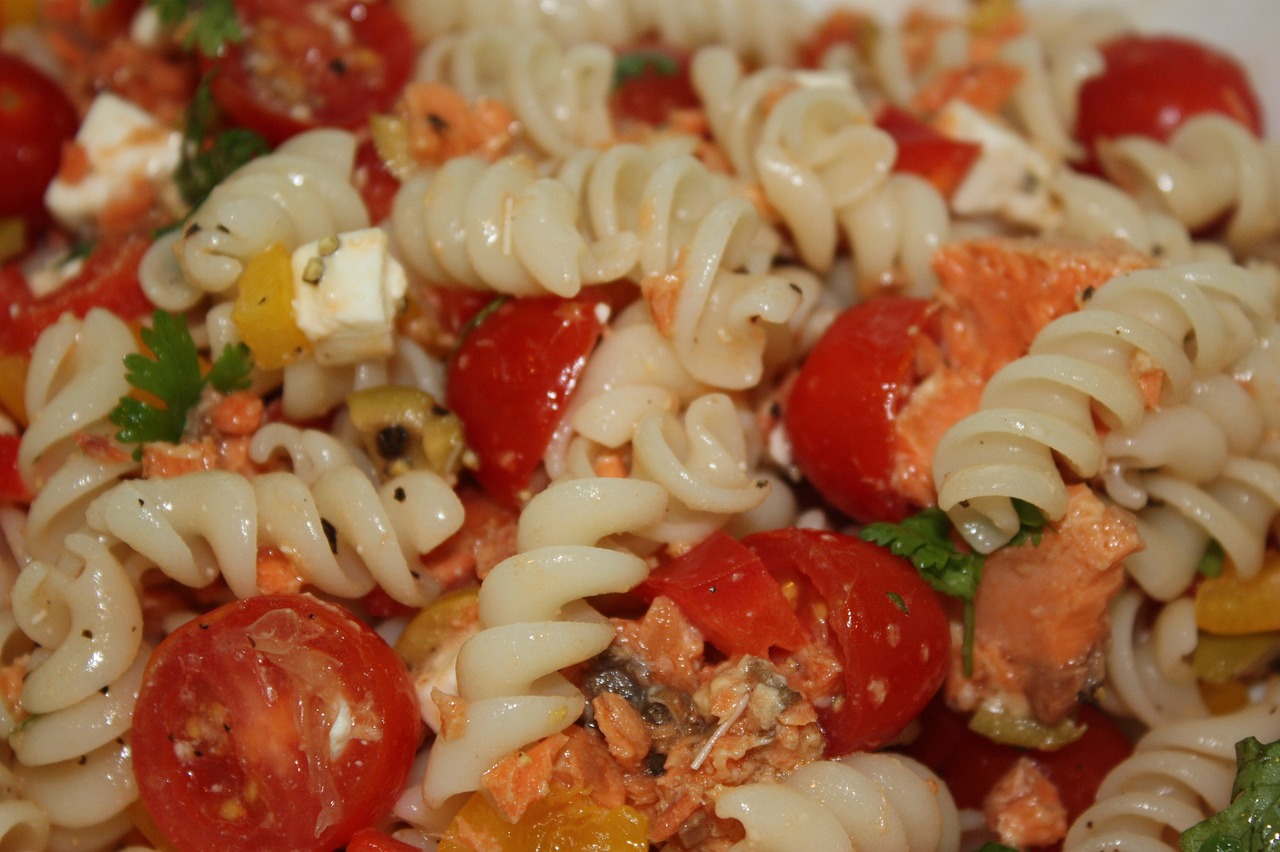How to Develop Healthy Eating Habits
Developing healthy eating habits is essential for maintaining a balanced lifestyle and promoting overall well-being. By understanding the basics of nutrition and adopting mindful practices, you can cultivate a positive relationship with food that nourishes your body and mind.
When it comes to healthy eating, balance is key. This means incorporating a variety of foods from all food groups to ensure you're getting the necessary nutrients your body needs. Portion control is also crucial to prevent overeating and maintain a healthy weight.
Planning balanced meals is a fundamental aspect of healthy eating. By creating meal plans that include a mix of whole grains, lean proteins, fruits, and vegetables, you can fuel your body with essential vitamins and minerals for optimal health and energy levels.
Smart grocery shopping plays a significant role in maintaining healthy eating habits. By making informed choices at the store, reading food labels, and avoiding processed foods high in sugar and unhealthy fats, you can set yourself up for success in the kitchen.
Cooking healthier meals at home allows you to take control of what you eat and experiment with nutritious ingredients. By exploring new recipes, cooking techniques, and substituting unhealthy ingredients with healthier alternatives, you can enjoy delicious meals that support your well-being.
Practicing mindful eating involves being present and attentive while enjoying your meals. By slowing down, savoring each bite, and listening to your body's hunger cues, you can foster a deeper appreciation for food and avoid mindless or emotional eating.
Healthy snacking habits are an important part of a balanced diet. Choosing nutrient-dense snacks like fruits, nuts, or yogurt, and planning ahead to avoid impulsive snacking can help you stay on track with your health goals while keeping hunger at bay.
Staying hydrated is crucial for overall health and well-being. Drinking an adequate amount of water throughout the day can help regulate your body temperature, aid digestion, and promote clear skin. Opting for water over sugary beverages is a simple way to reduce unnecessary calories and support hydration.
Maintaining consistency in your healthy eating habits is key to long-term success. By staying committed, overcoming obstacles, and seeking support from friends, family, or a healthcare professional, you can build sustainable habits that support your health and well-being for years to come.

Understanding the Basics
This article provides practical tips and advice on how to cultivate and maintain healthy eating habits for a better lifestyle and overall well-being.
When it comes to developing healthy eating habits, understanding the basics is crucial. It's like laying a solid foundation for a house - without it, everything else may crumble. So, what are these basics? Balanced nutrition is key. Just like a car needs the right fuel to run smoothly, our bodies require a mix of nutrients to function optimally. This means incorporating a variety of food groups into our meals, such as fruits, vegetables, whole grains, lean proteins, and healthy fats. Portion control is another fundamental aspect. Imagine a seesaw - too much or too little on one side can lead to imbalance. By being mindful of serving sizes, we can prevent overeating and ensure we're fueling our bodies appropriately. Lastly, mindful eating practices play a significant role. It's about being present in the moment, enjoying each bite, and listening to our body's hunger and fullness cues. By tuning into our bodies, we can foster a healthier relationship with food and make more conscious choices.

Planning Balanced Meals
This article provides practical tips and advice on how to cultivate and maintain healthy eating habits for a better lifestyle and overall well-being.
Exploring the fundamental principles of healthy eating, including the importance of balanced nutrition, portion control, and mindful eating practices.
When it comes to planning balanced meals, it's essential to consider a variety of nutrients that support your overall health and well-being. Think of your plate as a canvas, with different colors representing various food groups. Incorporating a mix of fruits, vegetables, whole grains, lean proteins, and healthy fats ensures that you're getting a broad range of essential nutrients.
Additionally, paying attention to portion sizes is crucial. Using smaller plates can help with portion control and prevent overeating. Planning your meals ahead of time can also assist in ensuring that each meal is well-balanced and nutritious. Consider using tools like meal planning apps or templates to streamline this process.
Tips for navigating the grocery store to make nutritious choices, read food labels effectively, and avoid unhealthy temptations.
Strategies for preparing delicious and nutritious meals at home, including recipe ideas, cooking techniques, and ingredient substitutions.
Exploring the concept of mindful eating, including strategies to savor and enjoy food, recognize hunger cues, and avoid emotional eating.
Suggestions for selecting nutritious snacks, planning ahead to avoid impulse eating, and incorporating snacks into a balanced diet.
The importance of proper hydration for overall health, tips for increasing water intake, and the benefits of choosing water over sugary beverages.
Advice on staying committed to healthy eating habits, overcoming challenges, and seeking support to sustain long-term dietary changes.
Stay tuned for answers to common queries about developing and maintaining healthy eating habits.

Smart Grocery Shopping
This article provides practical tips and advice on how to cultivate and maintain healthy eating habits for a better lifestyle and overall well-being.
Exploring the fundamental principles of healthy eating, including the importance of balanced nutrition, portion control, and mindful eating practices.
Guidance on creating well-rounded meal plans that incorporate essential nutrients, vitamins, and minerals to support overall health and energy levels.
When it comes to smart grocery shopping, it's all about making informed choices and staying focused on your health goals. Navigating the aisles of the store can be overwhelming, but with a few strategies in place, you can make nutritious decisions without falling for unhealthy temptations.
One effective tip is to create a shopping list before heading to the store. This list should be based on your meal plan for the week, ensuring you only purchase what you need and avoid impulse buys that may not align with your healthy eating goals.
Additionally, take the time to read food labels carefully. Ingredients lists and nutritional information can provide valuable insights into the quality of the products you're considering. Look for items with minimal added sugars, unhealthy fats, and artificial ingredients.
Another smart approach is to shop the perimeter of the grocery store where fresh produce, lean proteins, and whole grains are typically located. This can help you focus on whole, unprocessed foods that are essential for a nutritious diet.
Strategies for preparing delicious and nutritious meals at home, including recipe ideas, cooking techniques, and ingredient substitutions.
Exploring the concept of mindful eating, including strategies to savor and enjoy food, recognize hunger cues, and avoid emotional eating.
Suggestions for selecting nutritious snacks, planning ahead to avoid impulse eating, and incorporating snacks into a balanced diet.
The importance of proper hydration for overall health, tips for increasing water intake, and the benefits of choosing water over sugary beverages.
Advice on staying committed to healthy eating habits, overcoming challenges, and seeking support to sustain long-term dietary changes.

Cooking Healthier Meals
This article provides practical tips and advice on how to cultivate and maintain healthy eating habits for a better lifestyle and overall well-being.
Exploring the fundamental principles of healthy eating, including the importance of balanced nutrition, portion control, and mindful eating practices.
Guidance on creating well-rounded meal plans that incorporate essential nutrients, vitamins, and minerals to support overall health and energy levels.
Tips for navigating the grocery store to make nutritious choices, read food labels effectively, and avoid unhealthy temptations.
When it comes to cooking healthier meals, it's all about making smart choices in the kitchen. By focusing on using fresh ingredients and cooking methods that retain nutrients, you can create delicious dishes that are good for your body. Consider incorporating more vegetables, lean proteins, and whole grains into your recipes for added nutritional value. Experiment with herbs and spices to enhance flavor without relying on excessive salt or sugar. Remember, healthy cooking doesn't have to be bland or boring; it's about finding the right balance between taste and nutrition.
Exploring the concept of mindful eating, including strategies to savor and enjoy food, recognize hunger cues, and avoid emotional eating.
Suggestions for selecting nutritious snacks, planning ahead to avoid impulse eating, and incorporating snacks into a balanced diet.
The importance of proper hydration for overall health, tips for increasing water intake, and the benefits of choosing water over sugary beverages.
Advice on staying committed to healthy eating habits, overcoming challenges, and seeking support to sustain long-term dietary changes.

Mindful Eating Practices
Mindful eating is a powerful practice that involves being fully present and engaged during meals, allowing you to appreciate the flavors, textures, and aromas of your food. By focusing on the sensory experience of eating, you can cultivate a healthier relationship with food and make more conscious choices about what and how much you eat. Here are some key strategies to incorporate mindful eating into your daily routine:
One effective way to practice mindful eating is to sit down at a table without distractions such as phones, computers, or TV. By eliminating external stimuli, you can fully concentrate on your meal and the act of eating.
Chew your food slowly and thoroughly, savoring each bite and paying attention to the flavors and textures. This not only enhances your enjoyment of the meal but also allows your body to properly digest and absorb nutrients.
Another important aspect of mindful eating is listening to your body's hunger cues. Eat when you are genuinely hungry and stop when you feel satisfied, rather than relying on external cues or emotional triggers.
Be mindful of portion sizes and avoid overeating by serving yourself reasonable amounts and taking the time to assess your hunger levels throughout the meal. This can help prevent mindless eating and promote better digestion.
Additionally, appreciate the journey of your food from preparation to consumption. Consider the effort that went into growing, harvesting, and cooking the ingredients, which can deepen your connection to the food you eat and increase gratitude for each meal.

Healthy Snacking Habits
When it comes to maintaining healthy eating habits, snacking plays a crucial role in keeping your energy levels up and preventing overeating during main meals. However, not all snacks are created equal. It's essential to choose nutritious options that provide sustenance without loading up on empty calories. One effective strategy is to pre-plan your snacks to avoid reaching for unhealthy choices out of convenience. By having a selection of pre-cut fruits and vegetables or portioned nuts and seeds readily available, you can make smarter snacking decisions.
Another key aspect of healthy snacking habits is balance and variety. Incorporating a mix of macronutrients such as protein, healthy fats, and complex carbohydrates can help keep you satisfied between meals and prevent cravings for sugary or processed snacks. Consider options like Greek yogurt with berries and a sprinkle of nuts or whole grain crackers with hummus and sliced veggies for a satisfying and nutritious snack.
Furthermore, portion control is essential when it comes to snacking. It's easy to mindlessly munch on snacks, leading to consuming more calories than you realize. Using small bowls or containers to portion out your snacks can help prevent overeating. Additionally, listening to your body's hunger cues and avoiding emotional eating are crucial aspects of healthy snacking habits.
Lastly, don't forget the importance of hydration when snacking. Sometimes, our bodies confuse thirst with hunger, leading us to snack when we're actually just dehydrated. Pair your snacks with a glass of water to stay hydrated and ensure you're truly satisfying your body's needs.

Staying Hydrated
Proper hydration is essential for maintaining overall health and well-being. Water plays a crucial role in various bodily functions, including regulating body temperature, aiding digestion, and transporting nutrients. When it comes to staying hydrated, it's important to listen to your body's signals and ensure you're getting an adequate amount of fluids throughout the day.
One effective way to track your hydration levels is by monitoring the color of your urine. Clear or pale yellow urine is a good indication that you are well-hydrated, while dark yellow urine may signal dehydration. Remember, thirst is not always a reliable indicator of hydration, so it's important to drink water regularly even if you're not feeling thirsty.
Choosing water as your primary beverage is a smart and healthy choice. Water is calorie-free, sugar-free, and essential for maintaining proper bodily functions. Avoid sugary drinks like soda and fruit juices, as they can add unnecessary calories and sugar to your diet. If you find plain water boring, try infusing it with fresh fruits or herbs for added flavor.
For those who struggle to drink enough water throughout the day, setting reminders or carrying a reusable water bottle can be helpful strategies. Keeping water easily accessible and visible can serve as a visual cue to remind you to stay hydrated. Additionally, incorporating hydrating foods such as fruits, vegetables, and soups into your diet can contribute to your overall fluid intake.
Incorporating herbal teas, coconut water, and homemade smoothies can also be enjoyable ways to stay hydrated while adding variety to your beverage choices. Experiment with different flavors and combinations to find options that you enjoy. Remember, staying hydrated is not only important for your physical health but can also impact your energy levels, cognitive function, and overall well-being.

Maintaining Consistency
Consistency is key when it comes to developing and sustaining healthy eating habits. Just like building a house brick by brick, forming a routine around nutritious food choices requires dedication and perseverance. It's not about perfection but about progress. Imagine consistency as the steady beat of a drum in a musical piece; it sets the rhythm and keeps everything in harmony.
One effective way to maintain consistency is by setting achievable goals and gradually incorporating healthier choices into your daily life. Start small, perhaps by adding an extra serving of vegetables to your meals or swapping sugary snacks for fruit. These incremental changes can lead to significant improvements over time.
Additionally, creating a meal plan and prepping meals in advance can help you stay on track, especially during busy days when fast food may seem like the only option. By having nutritious meals readily available, you are less likely to veer off course and indulge in less healthy alternatives.
Another vital aspect of consistency is accountability. Whether it's sharing your progress with a friend, joining a cooking class, or seeking guidance from a nutritionist, having support can motivate you to stay committed to your goals. It's like having a workout buddy who cheers you on during challenging moments.
Remember, setbacks are normal, and it's essential to approach them with kindness and understanding. If you find yourself deviating from your healthy eating plan, don't be too hard on yourself. Instead, reflect on what triggered the lapse and use it as a learning opportunity to make better choices moving forward.
In the journey towards maintaining consistency in healthy eating habits, celebrate your successes, no matter how small they may seem. Each wholesome meal, every mindful snack choice, and all the glasses of water you drink contribute to your overall well-being. Consistency is not a sprint but a marathon, and every step you take towards a healthier lifestyle is a victory worth acknowledging.
Frequently Asked Questions
- What are healthy eating habits?
Healthy eating habits refer to making nutritious food choices that provide essential nutrients to support overall health and well-being. This includes consuming a variety of fruits, vegetables, whole grains, lean proteins, and healthy fats while limiting processed foods, sugar, and excessive sodium intake.
- How can I start developing healthy eating habits?
To begin developing healthy eating habits, start by setting realistic goals, such as incorporating more vegetables into your meals or reducing sugary snacks. Plan balanced meals, stay hydrated, and practice mindful eating to build a sustainable and nutritious diet.
- Is it necessary to count calories to maintain healthy eating habits?
While calorie counting can be a helpful tool for some individuals, it is not necessary for everyone to maintain healthy eating habits. Focus on consuming nutrient-dense foods, listening to your body's hunger cues, and prioritizing balanced nutrition over strict calorie counting.
- How can I overcome cravings for unhealthy foods?
To overcome cravings for unhealthy foods, try replacing them with healthier alternatives, such as snacking on fruits instead of candies or opting for air-popped popcorn instead of chips. Additionally, practicing mindful eating and addressing the root cause of cravings can help manage them effectively.
- What role does hydration play in healthy eating habits?
Proper hydration is essential for overall health and plays a crucial role in maintaining healthy eating habits. Drinking an adequate amount of water helps regulate bodily functions, supports digestion, and can prevent overeating by keeping you feeling full and satisfied.



















